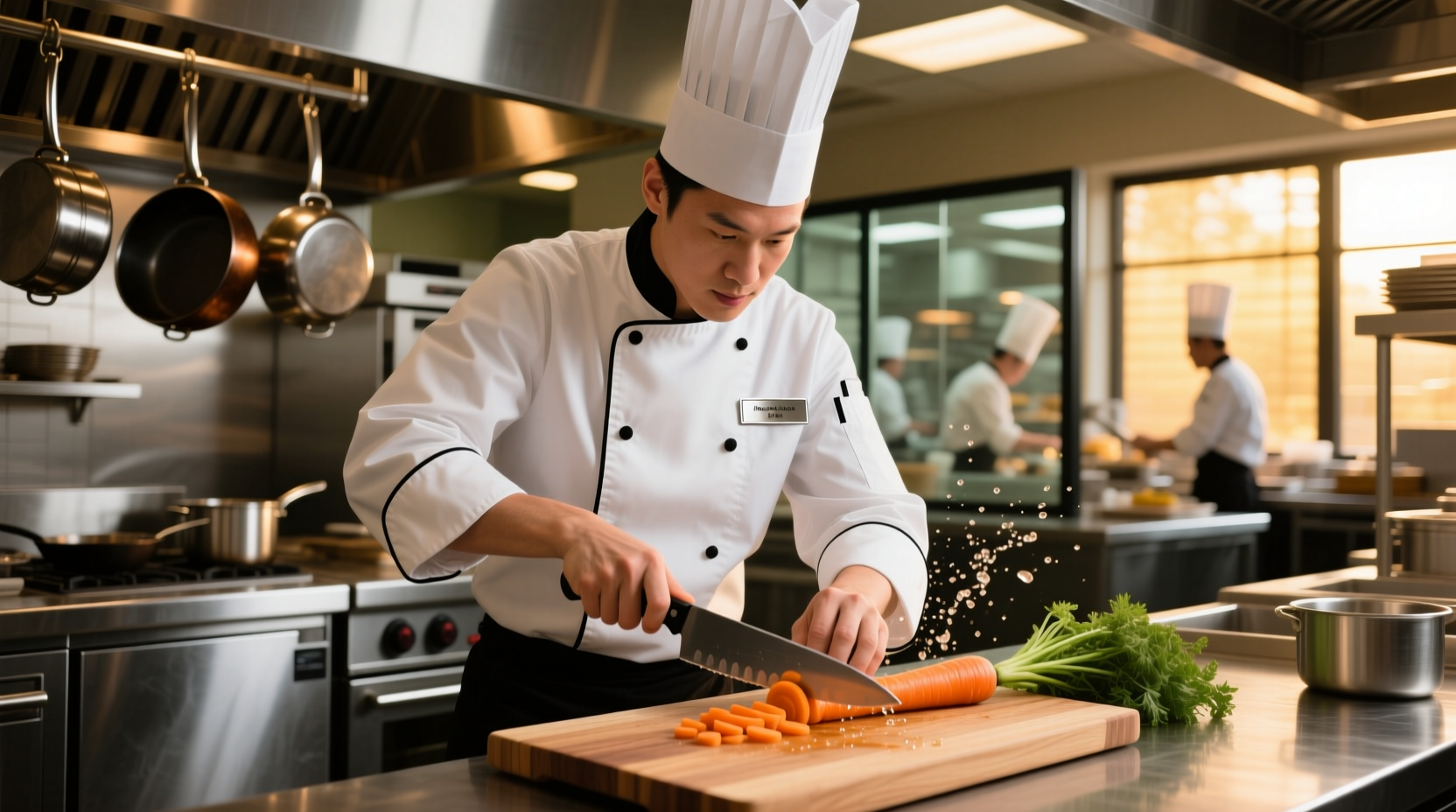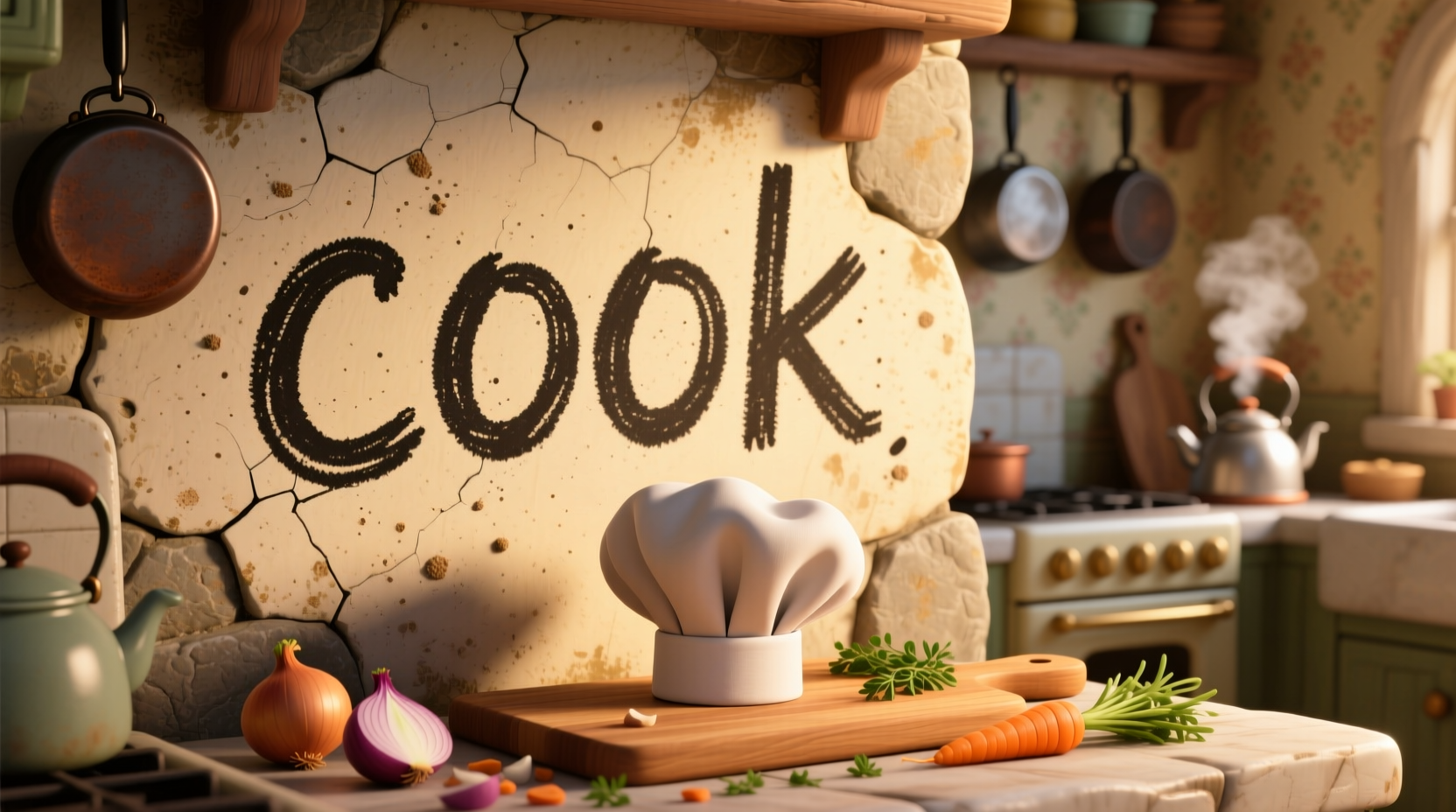Understanding the Core Meaning of 'Cook'
When someone asks what does cook mean, they're typically seeking the fundamental definition of this versatile word. At its most basic level, 'cook' as a verb describes the process of making food ready to eat by applying heat. This could involve various methods including:
- Baking in an oven
- Boiling in water
- Frying in oil
- Grilling over flame
- Steaming with hot vapor
As a noun, 'cook' refers to a person who prepares food, whether professionally in a restaurant or casually at home. While 'chef' typically denotes a trained professional, 'cook' is a more general term applicable to anyone who prepares meals.

How 'Cook' Evolved Through History
The meaning of 'cook' has transformed significantly over centuries. Understanding this evolution helps clarify what does cook mean in different historical contexts:
| Time Period | Meaning of 'Cook' | Key Developments |
|---|---|---|
| Old English (5th-11th century) | Derived from 'coc,' meaning 'to prepare food' | First appeared in written records around 1300 CE |
| Middle English (11th-15th century) | Began referring to both the action and the person | Specialized culinary terms emerged in medieval cookbooks |
| 18th-19th century | Expanded to include metaphorical meanings | 'Cook the books' emerged as financial slang around 1880 |
| Modern usage | Multifaceted term with culinary and slang applications | Digital age introduced phrases like 'let's cook' meaning 'let's begin' |
Contextual Meanings: What Does 'Cook' Really Mean?
When exploring what does cook mean, context is everything. The same word carries different implications depending on how it's used:
Culinary Context
In cooking terminology, 'cook' specifically refers to the application of heat to transform raw ingredients. Professional kitchens distinguish between:
- Cooking: The general process of applying heat
- Preparation: The steps before heat application (chopping, mixing)
- Finishing: Final touches before serving
Slang and Informal Usage
Modern slang has expanded what does cook mean beyond the kitchen:
- 'Let's cook!' - Expression of readiness or excitement (popularized in social media)
- 'Cook the books' - To falsify financial records
- 'Cooked' - Slang for being in trouble or exhausted ('I'm cooked after that workout')
- 'Cooking with gas' - Idiom meaning performing well or making progress
Common Misunderstandings About 'Cook'
Many people confuse related terms when asking what does cook mean. Understanding these distinctions prevents communication errors:
| Term | Correct Meaning | Common Misconception |
|---|---|---|
| Cook vs. Chef | All chefs are cooks, but not all cooks are chefs. Chef implies formal training and leadership. | Using 'chef' for anyone who prepares food at home |
| Cooking vs. Baking | Cooking typically uses direct heat; baking uses surrounding dry heat in an oven. | Treating these as completely interchangeable terms |
| 'Cooked' food | Food that has been heated to a safe temperature for consumption. | Assuming 'cooked' always means thoroughly done (some dishes require 'al dente' or rare preparation) |
Practical Applications: Using 'Cook' Correctly
Knowing what does cook mean helps you communicate more effectively about food preparation. Consider these guidelines:
When to Use 'Cook' vs. More Specific Terms
While 'cook' is a general term, precision improves communication:
- Use 'cook' when referring to the overall process: 'I'll cook dinner tonight.'
- Use specific methods when technique matters: 'I'll simmer the sauce for two hours' rather than 'I'll cook the sauce.'
- In professional settings, accuracy demonstrates culinary knowledge
Regional Variations to Consider
The meaning of 'cook' can vary by English-speaking region:
- In British English, 'cook' sometimes specifically means 'to boil'
- American English uses 'cook' as a broader term covering all heat application methods
- Australian slang might use 'cook' to mean 'to overheat' ('This sun will cook you!')
Why Understanding 'Cook' Matters Beyond the Kitchen
The versatility of 'cook' makes it essential vocabulary. When you understand what does cook mean in different contexts, you can:
- Follow recipes accurately
- Understand cultural references in media
- Avoid misunderstandings in professional kitchens
- Appreciate the evolution of language through culinary history
- Communicate more precisely about food preparation
Frequently Asked Questions
What does 'cook' mean in slang?
In modern slang, 'cook' often means 'to begin' or 'to execute successfully.' Phrases like 'let's cook!' express readiness or excitement about starting something. It can also mean 'to falsify records' as in 'cook the books,' or describe someone who's exhausted as in 'I'm cooked.'
Is there a difference between 'cook' and 'chef'?
Yes, there's an important distinction. All chefs are cooks, but not all cooks are chefs. 'Chef' (from French 'chef de cuisine') implies formal culinary training, leadership responsibilities in a kitchen, and often specialization. 'Cook' is a more general term for anyone who prepares food, whether professionally or at home.
What does 'cook' mean in culinary terms?
In professional culinary terms, 'cook' specifically refers to the application of heat to transform raw ingredients into edible food. This distinguishes it from preparation (chopping, mixing) and finishing (garnishing, plating). Different cooking methods include baking, boiling, frying, grilling, and steaming, each producing distinct textures and flavors.
How has the meaning of 'cook' changed over time?
The word 'cook' originated from the Old English 'coc' around 1300 CE, initially referring only to the person preparing food. By the Middle English period, it evolved to describe both the person and the action. The 18th-19th centuries saw metaphorical extensions like 'cook the books' (falsify records). Modern usage includes digital age slang like 'let's cook' meaning 'let's begin,' showing how culinary terms continually evolve in everyday language.
What's the difference between cooking and baking?
While both involve heat application, cooking typically uses direct heat sources (stovetop, grill, open flame) and allows for more improvisation. Baking uses surrounding dry heat in an enclosed oven with precise temperature control, requiring more exact measurements and timing. Baking is actually a subset of cooking, but the terms have become specialized in culinary practice with different techniques and expectations.











 浙公网安备
33010002000092号
浙公网安备
33010002000092号 浙B2-20120091-4
浙B2-20120091-4